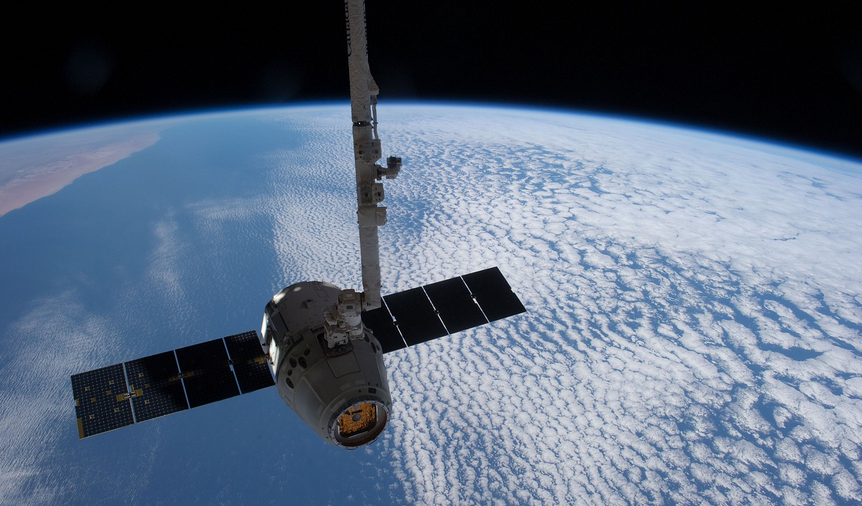 By B.N. Frank
By B.N. Frank
High-speed internet connections can be achieved via safer and more secure methods than harmful wireless-radiation emitting satellites. In fact, experts have been warning for years that launching thousands more satellites into an already overcrowded space will create even more problems including a higher risk of human fatalities (see 1, 2). Disturbing reports about Starlink satellites specifically include that they have been swerving every 10 minutes to avoid collision, falling from orbit and burning, threatening lives from falling satellite debris, and locking people out of their accounts. Of course, their speeds have slowed down too which has again cost them a sizable grant.
From Ars Technica:
SpaceX blasts FCC as it refuses to reinstate Starlink’s $886 million grant
FCC doubts ability to provide high-speed, low-latency service in all grant areas.
SpaceX is furious at the Federal Communications Commission after the agency refused to reinstate an $886 million broadband grant that was tentatively awarded to Starlink during the previous administration.
The FCC announced yesterday that it rejected SpaceX’s appeal. “The FCC followed a careful legal, technical and policy review to determine that this applicant had failed to meet its burden to be entitled to nearly $900 million in universal service funds for almost a decade,” FCC Chairwoman Jessica Rosenworcel said.
In December 2020, shortly before the departure of then-FCC Chairman Ajit Pai, Starlink was tentatively awarded $885.51 million in broadband funding from the Rural Digital Opportunity Fund (RDOF). But the satellite provider still needed FCC approval of a long-form application to receive the money, which is meant to subsidize deployment in areas with little or no high-speed broadband access.
The Rosenworcel FCC rejected the long-form application in August 2022, and SpaceX appealed the decision the next month. The FCC also rejected the long-form application of LTD Broadband, a fixed wireless provider that was originally slated to get $1.3 billion. LTD recently renamed itself “GigFire.”
The Starlink and LTD rejections were the two biggest changes to a $9.2 billion round of grants that, in the Rosenworcel FCC’s words, fueled “complaints that the program was poised to fund broadband to parking lots and well-served urban areas.” The FCC denied LTD’s appeal last week and proposed a fine of $21.7 million for defaulting on grant bids.
SpaceX “disappointed and perplexed”
After yesterday’s Starlink denial, SpaceX quickly filed a response saying the company “is deeply disappointed and perplexed by the Commission’s decision to exclude SpaceX’s Starlink satellite broadband service from the Rural Digital Opportunity Fund.”
“This decision directly undermines the very goal of RDOF: to connect unserved and underserved Americans,” SpaceX told the FCC. “Starlink is demonstrably one of the best options—likely the best option—to accomplish the goals of RDOF. Indeed, Starlink is arguably the only viable option to immediately connect many of the Americans who live and work in the rural and remote areas of the country where high-speed, low-latency Internet has been unreliable, unaffordable, or completely unavailable, the very people RDOF was supposed to connect.”
We asked SpaceX whether it plans to appeal in court and will update this article if we get an answer.
Starlink’s grant was intended to subsidize deployment to 642,925 rural homes and businesses in 35 states. The August 2022 ruling that rejected the grant called Starlink a “nascent LEO [low Earth orbit] satellite technology” with “recognized capacity constraints.” The FCC questioned Starlink’s ability to consistently provide low-latency service with the required download speeds of 100Mbps and upload speeds of 20Mbps.
In rejecting SpaceX’s appeal, yesterday’s FCC order said the agency’s Wireline Competition Bureau “followed Commission guidance and correctly concluded that Starlink is not reasonably capable of offering the required high-speed, low-latency service throughout the areas where it won auction support.”
SpaceX CEO Elon Musk has acknowledged Starlink’s capacity limits several times, saying for example that it will face “a challenge [serving everyone] when we get into the several million user range.”
FCC Republicans dissent
The FCC order was approved in a 3-2 vote, with Republican Commissioners Brendan Carr and Nathan Simington dissenting. Carr’s dissenting statement said the appeal denial “certainly fits the Biden Administration’s pattern of regulatory harassment.”
“Today, the Federal Communications Commission adds itself to the growing list of administrative agencies that are taking action against Elon Musk’s businesses,” Carr wrote. He accused the FCC of ignoring evidence “that Starlink is reasonably capable of providing qualifying high-speed Internet service to the required number of locations by the end of 2025.”
Simington’s dissent said that “SpaceX’s technology is proven. The proof is the millions of subscribers—many in areas that other providers and the FCC have failed to serve for decades—already receiving high-quality broadband service through Starlink. And SpaceX continues to put more satellites into orbit every month, which should translate to even faster and more reliable service.”
“If this is what passes for due process and the rule of law at the FCC, then this agency ought not to be trusted with the adjudicatory powers Congress has granted it and the deference that the courts have given it,” Simington wrote.
SpaceX criticizes use of Ookla speed tests
SpaceX’s filing yesterday said the company “dedicated significant engineering and other resources toward meeting its obligations, submitted its long-form application in compliance with program rules, responded to multiple rounds of intensive questions from the staff, and explained in great detail how it would connect the locations it successfully bid to serve.”
SpaceX also faulted the FCC for relying on Ookla speed tests:
For instance, the Bureau’s decision arbitrarily penalized SpaceX—and only SpaceX—for not meeting RDOF speed requirements years before SpaceX had any obligation to do so. The arbitrariness of applying this unstated standard exclusively to SpaceX was only compounded by the Bureau’s reliance on Ookla nationwide speed tests without any notice that it planned to use such tests and even though those nationwide averages included areas that would not be served by RDOF. Even so, Starlink likely recorded the fastest speeds of any operator in the locations eligible for RDOF funds… Starlink has also deployed its service in advance of all RDOF deployment milestones and well ahead of most, if not all, RDOF awardees.
The FCC rejection said the agency used “the most recent available data at the time of its decision to evaluate its existing network performance.” With its user-initiated speed tests, Ookla found last year that Starlink speeds were declining as more people used the service.
“Starlink does not explain what other data source the Bureau should have used… When the Bureau’s decision was made, the most recent available evidence showed that ‘Starlink’s performance had been declining for download speed, upload speed, and jitter test performance.’ In other words, it was not only failing to meet RDOF public interest obligations, but also trending away from them,” the FCC said.
The FCC also compared Starlink unfavorably to fiber services. “Unlike fiber or other technologies currently in use, Starlink did not point to examples where its technology was providing service at the required level in the United States,” the FCC said. “Starlink only argued that it would be able to meet the required RDOF obligations by 2025.” Thus, the FCC said Bureau officials used “the best available data to make a predictive judgement.”
Regardless of Starlink not getting funding,
- Pending U.S. bills would allow the launching of hundreds of thousands more satellites with NO environmental review
- The Federal Communications Commission (FCC) just made the satellite application process easier so they can be launched more quickly
Boo! Hiss!
Activist Post reports regularly about broadband, satellites, and unsafe technologies. For more information, visit our archives.
Become a Patron!
Or support us at SubscribeStar
Donate cryptocurrency HERE
Subscribe to Activist Post for truth, peace, and freedom news. Follow us on SoMee, Telegram, HIVE, Minds, MeWe, Twitter – X, Gab, and What Really Happened.
Provide, Protect and Profit from what’s coming! Get a free issue of Counter Markets today.


Be the first to comment on "SpaceX “is deeply disappointed and perplexed” because FCC Still Won’t Reinstate Starlink’s $886M Broadband Grant"